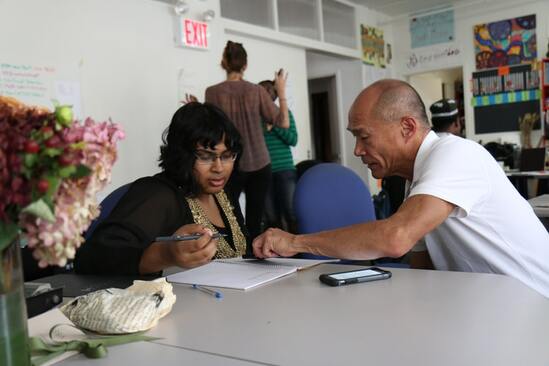Do You Have the Right Personality Traits For Being A Counselor? - Sally W.
Becoming a counselor takes years of hard work and dedication, but sometimes that still doesn’t mean you’ll be fit for the job at the end of it. Working as a counselor takes a certain type of person who possesses ideal traits and has developed a good understanding of themselves which can then be applied to others. Unfortunately, years of studying can’t always offer this, so determining if you would suit the role of a counselor before becoming invested in it is essential.
Effective and adaptive communication is key
It seems obvious, but the biggest thing a counselor needs to be good at is communication. Communication can be learnt to a certain extent but some traits and innate skills go a long way. You need to be able to understand how what you’re saying to someone will be accepted and interpreted, including people who have faulty think patterns.
You also need to be able to quickly pick up on how the person will best respond to you. For instance, some people appreciate direct and blunt communication that doesn’t beat around the bush, while others can be offended by this and instead need positive reinforcement that gives them time to accept what you’re saying. Being a good communicator will help people to feel confident in you and your skills as a counselor.
Listen to the past but focus on the future
A person’s past shapes how they are in the present, so listening to these stories is a crucial first step for counseling, but essentially why a person is seeing a counselor is because they want to change where their future is heading. This can be needing healthy coping mechanisms, changing faulty thinking patterns, or overcoming addiction. Someone with an INFJ personality type, also known as a "confidant," is particularly good at focusing on the future, making them ideal personality types for counseling. They also score as the most empathetic personality of all the Myer-Briggs types, adding to their ideal traits.
Being able to hear other’s stories
Counselors need to master being sensitive to other’s feelings, problems, and needs, which can involve hearing horrific stories, often of abuse, whilst also being able to see how the person can be helped. Being able to process what has happened to someone and how it is affecting them in the present can be difficult, especially when you’re still getting to know a person, but is an essential part of being a counselor. Additionally, some people struggle to hear sad stories and can be affected by them for hours, if not days. While having empathy is important, having too much can make you some people too sensitive to be able to mentally cope with being a counselor.
Studying and training is an essential part of being a counselor, but some people have innate personality traits and skills that make them a perfect fit for the role. It’s important to investigate whether your personality suits being a counselor before investing your time and money into a career choice that may not be for you in the end.
Effective and adaptive communication is key
It seems obvious, but the biggest thing a counselor needs to be good at is communication. Communication can be learnt to a certain extent but some traits and innate skills go a long way. You need to be able to understand how what you’re saying to someone will be accepted and interpreted, including people who have faulty think patterns.
You also need to be able to quickly pick up on how the person will best respond to you. For instance, some people appreciate direct and blunt communication that doesn’t beat around the bush, while others can be offended by this and instead need positive reinforcement that gives them time to accept what you’re saying. Being a good communicator will help people to feel confident in you and your skills as a counselor.
Listen to the past but focus on the future
A person’s past shapes how they are in the present, so listening to these stories is a crucial first step for counseling, but essentially why a person is seeing a counselor is because they want to change where their future is heading. This can be needing healthy coping mechanisms, changing faulty thinking patterns, or overcoming addiction. Someone with an INFJ personality type, also known as a "confidant," is particularly good at focusing on the future, making them ideal personality types for counseling. They also score as the most empathetic personality of all the Myer-Briggs types, adding to their ideal traits.
Being able to hear other’s stories
Counselors need to master being sensitive to other’s feelings, problems, and needs, which can involve hearing horrific stories, often of abuse, whilst also being able to see how the person can be helped. Being able to process what has happened to someone and how it is affecting them in the present can be difficult, especially when you’re still getting to know a person, but is an essential part of being a counselor. Additionally, some people struggle to hear sad stories and can be affected by them for hours, if not days. While having empathy is important, having too much can make you some people too sensitive to be able to mentally cope with being a counselor.
Studying and training is an essential part of being a counselor, but some people have innate personality traits and skills that make them a perfect fit for the role. It’s important to investigate whether your personality suits being a counselor before investing your time and money into a career choice that may not be for you in the end.
